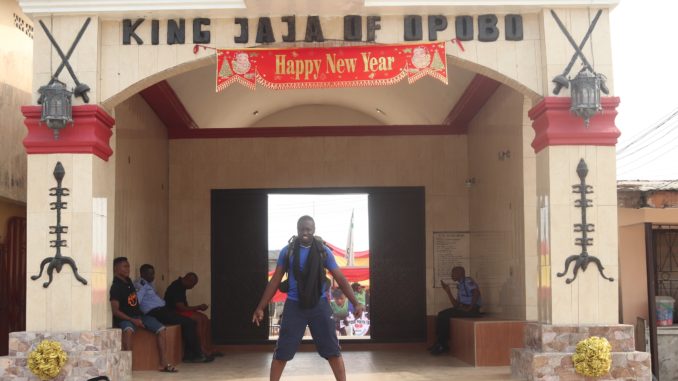
The next morning, I joined David at the Yenogoa Central park from where we continued the journey to Opobo in Rivers State. The single reason for this visit is not even to see Jaja’s ancient palace but to see where he was buried so I could pay my last respect to him – the same way I did for Thomas Sankara of Burkina Faso and several other notable Africans that demonstrated bravery and served their people with all their being.
The journey to Port Harcourt Waterlines was almost an hour and half and costed 2000 Naira. Even though it was almost mid-day, we had lunch on our arrival, knowing fully well we might not find anything else to eat when we get to Opobo. We also had to withdraw cash for our transport and several other logistics knowing fully well we may not be able to find a cash point at our final destination. Prior to our visit, we were told that the only way we could get to Opobo from Port Harcourt was by boat but however, on our arrival, we were told to take a vehicle to a place called Bori, form where we took a bike to Opobo. It is also possible to go to the bus Park in Mile 1 in Port Harcourt and from there take a vehicle directly to Opobo. In our case however, due to the fact it was a day after Christmas and for the fact we did not arrive early, we had to break the journey in halves which took us to Bori and then on a motorbike to Opobo. We paid 500 Naira each to get there.
On arrival at Opobo, David could still recognize some familiar sights. He had lived there almost 25 years ago and knew a lot about the culture, music, foods and even their masquerades. He vividly remembered the primary school he attended when we passed it. He was amazed at the level of development that has come to the ancient kingdom. We had earlier requested the motorbike that brought the two of us to wait and return us back to Bori – but we later changed our mind after our tour.
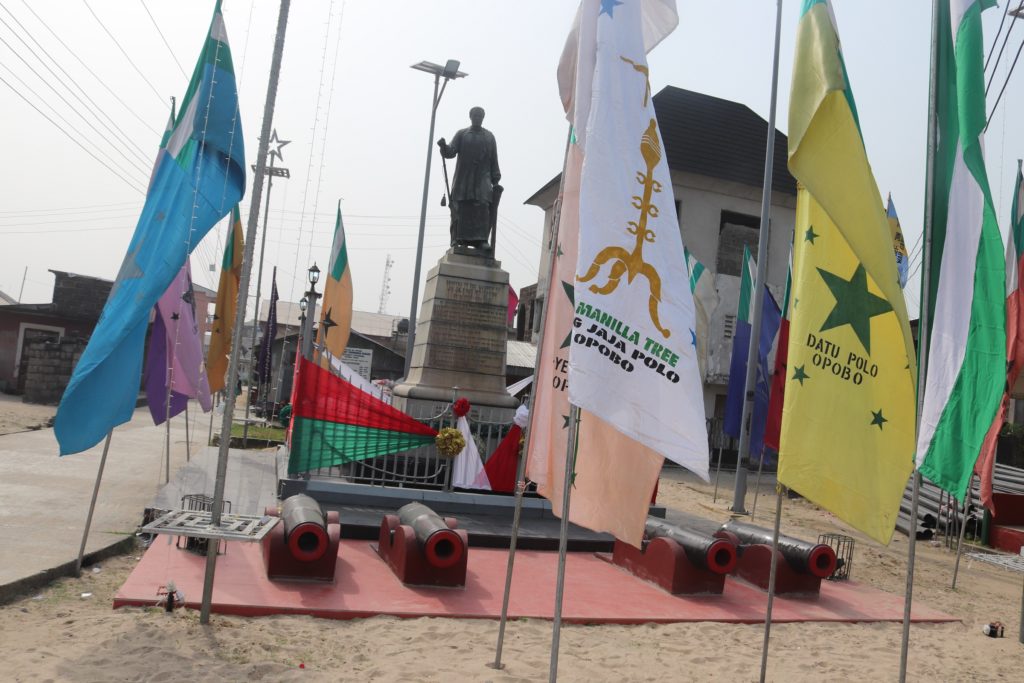
In front of The Palace of the Jaja of Opobo 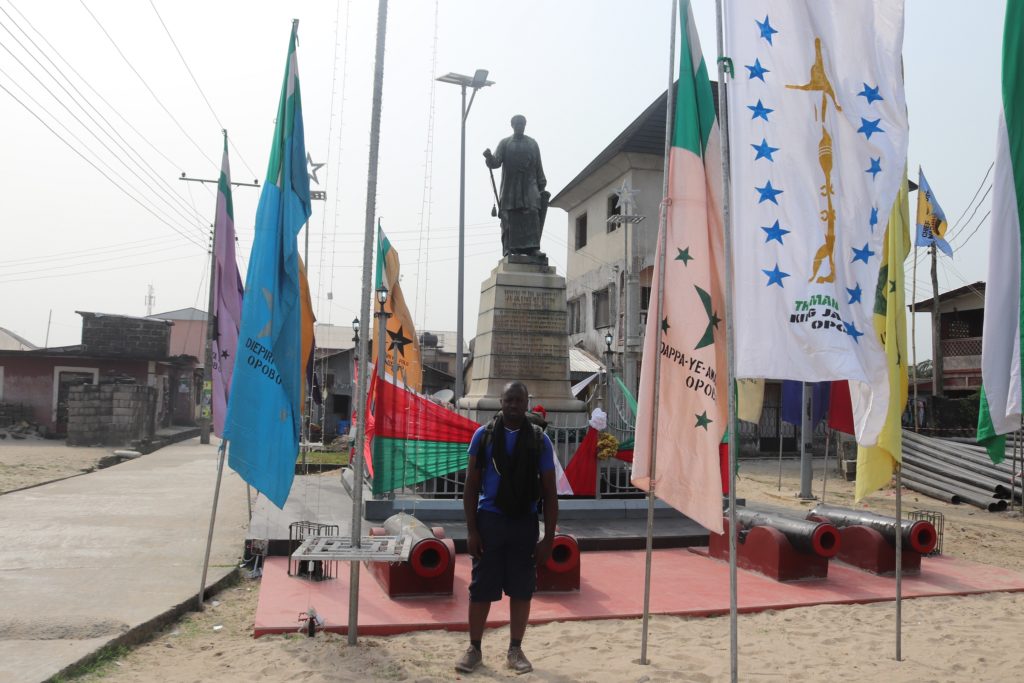
In front of The Palace of the Jaja of Opobo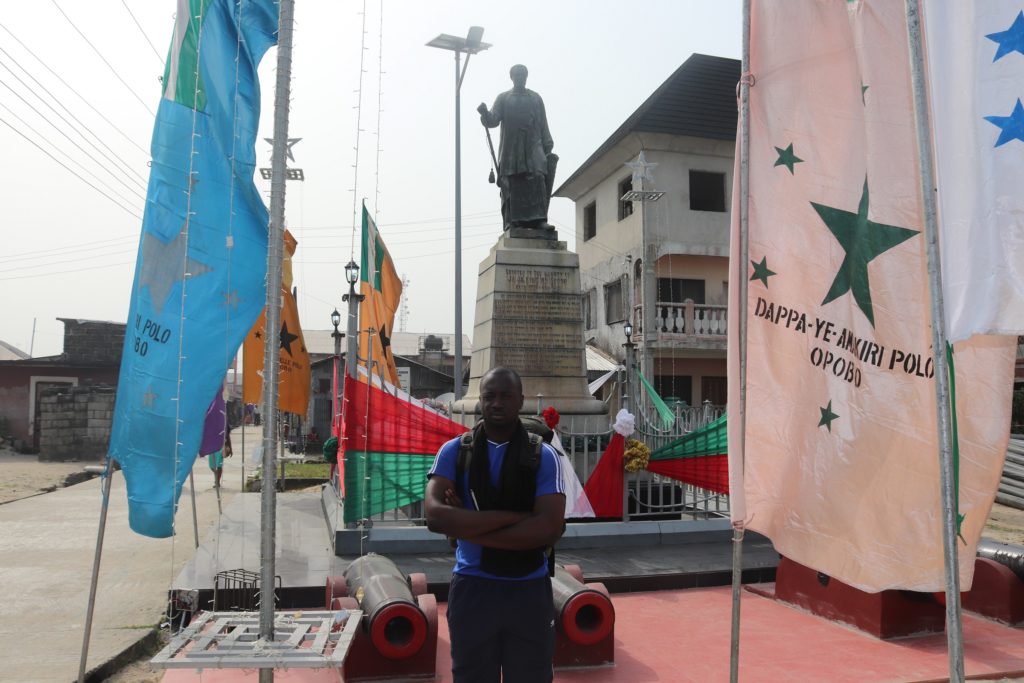
In front of The Palace of the Jaja of Opobo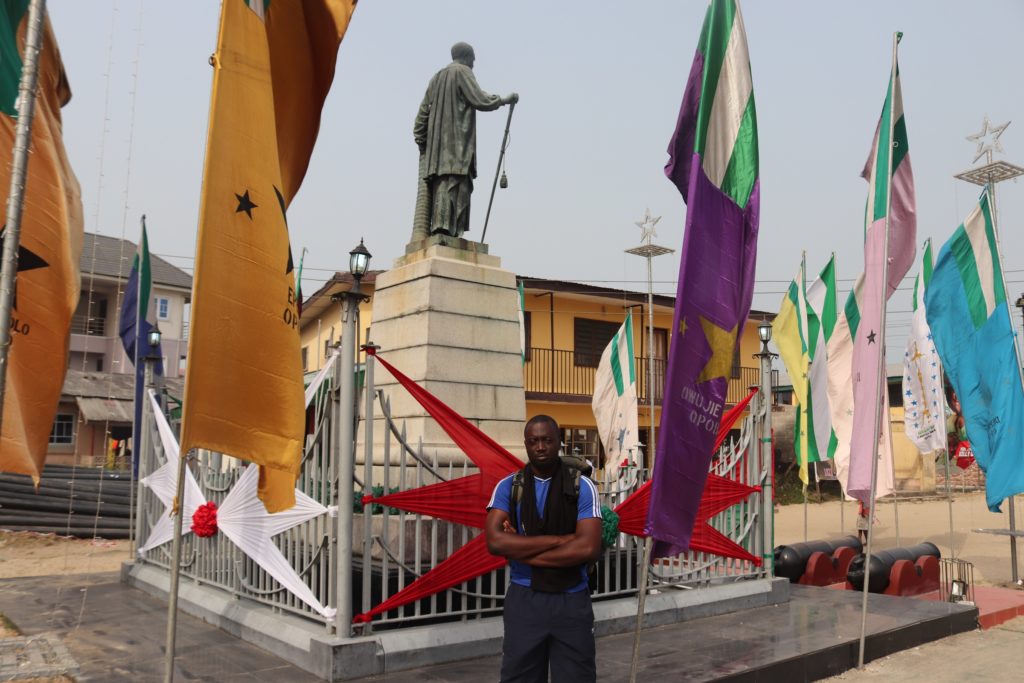
In front of The Palace of the Jaja of Opobo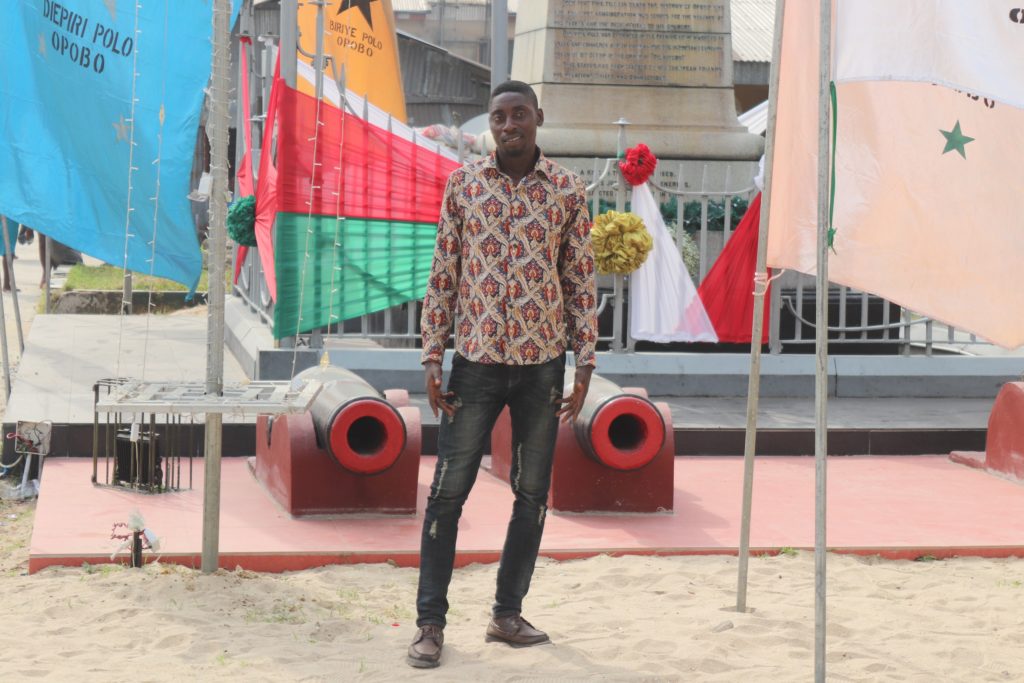
David,
In front of The Palace of the Jaja of Opobo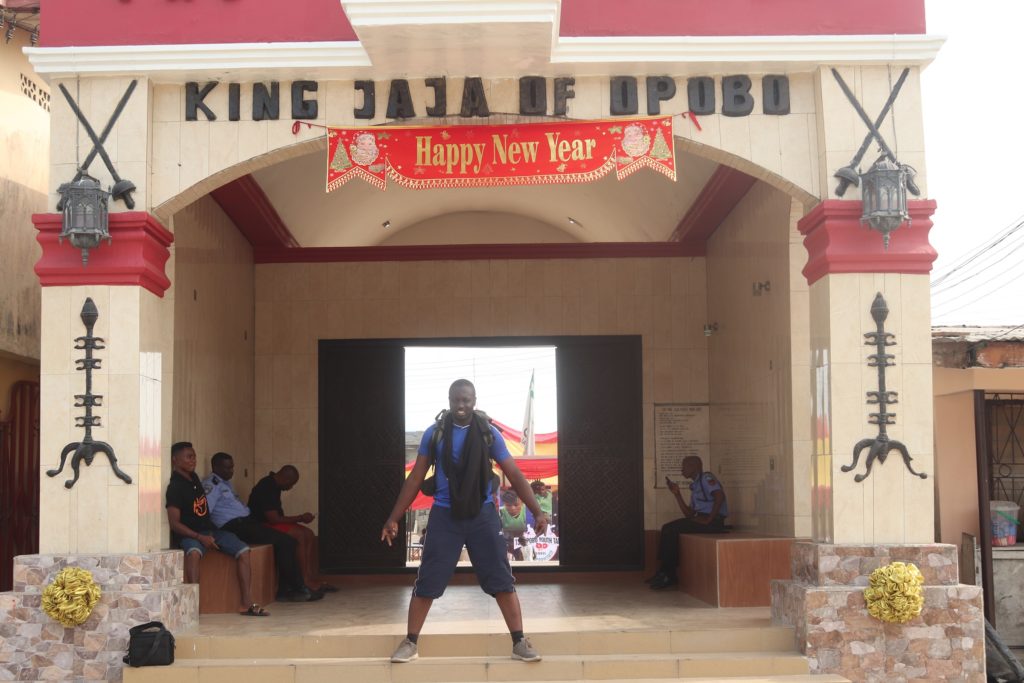
In front of The Palace of the Jaja of Opobo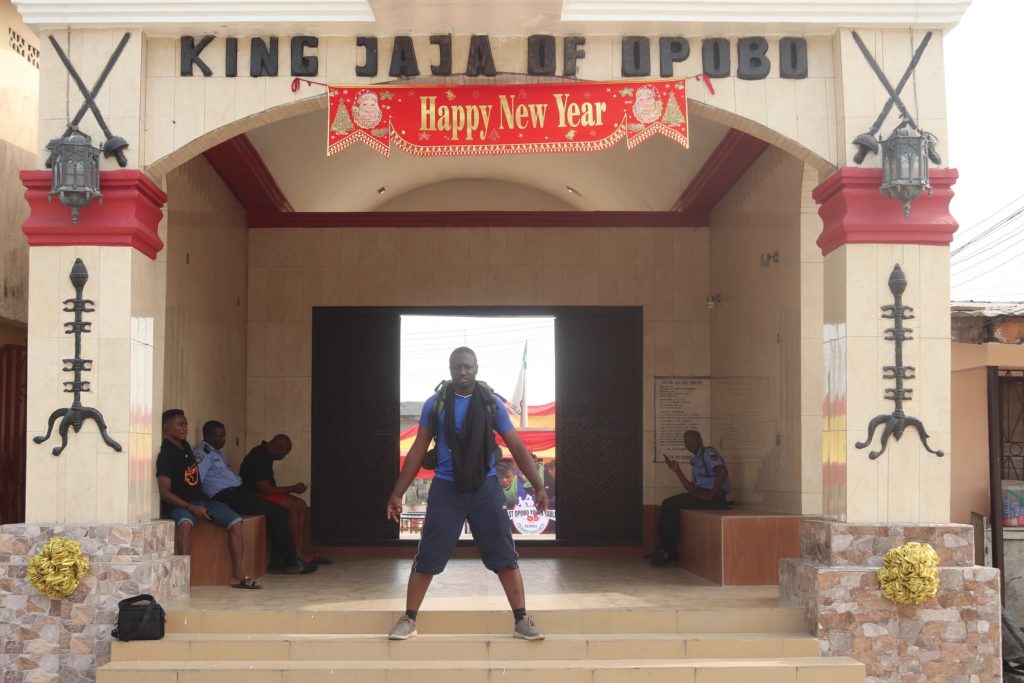
In front of The Palace of the Jaja of Opobo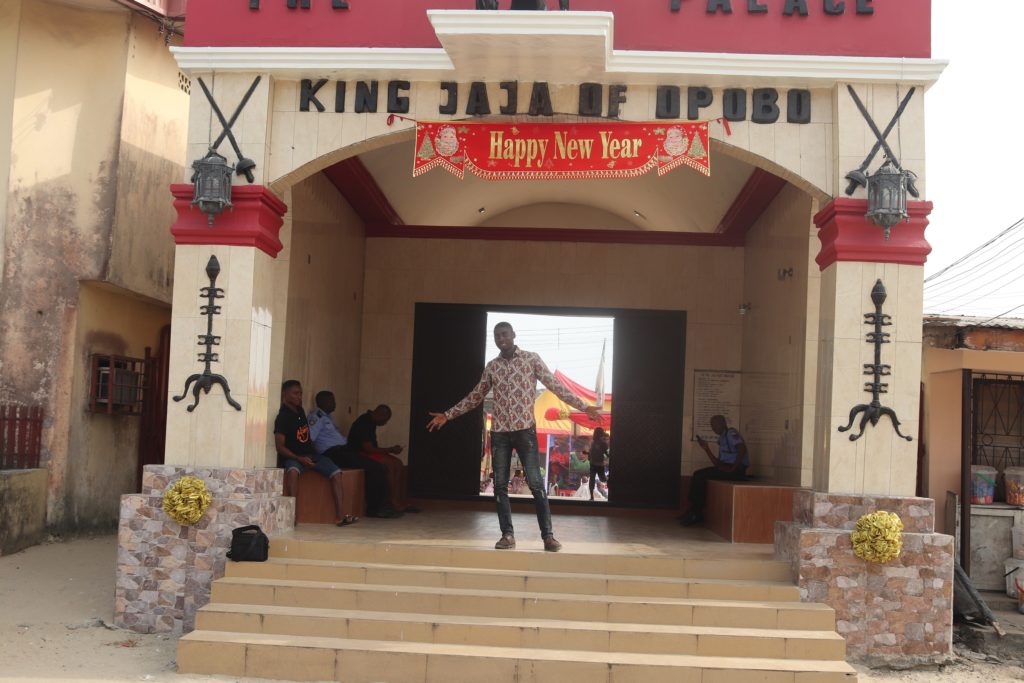
David,
In front of The Palace of the Jaja of Opobo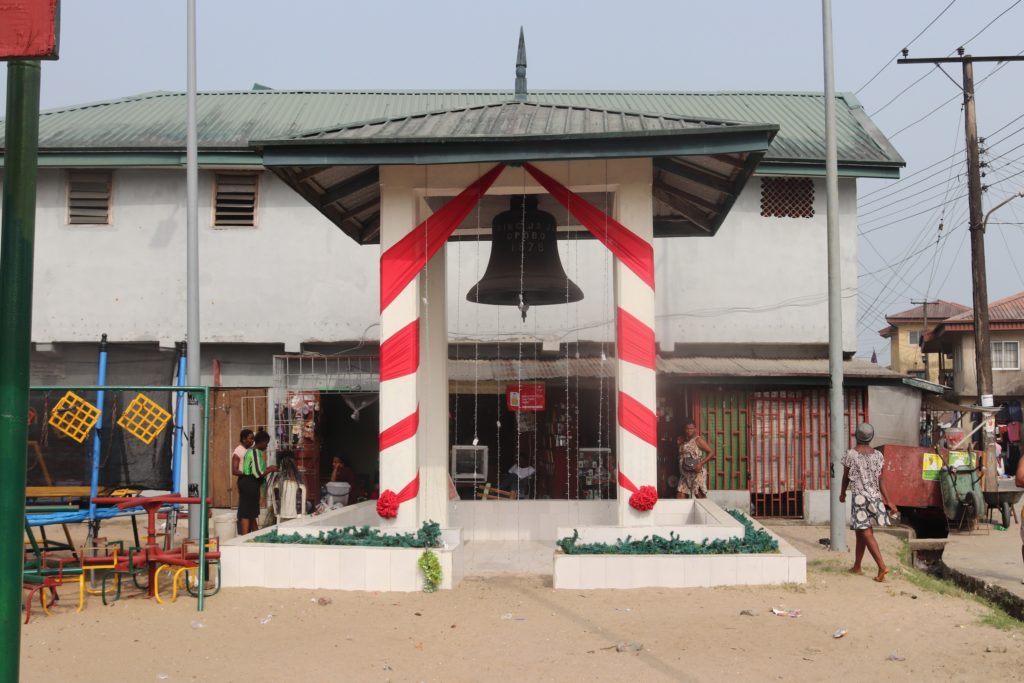
The Bell in front of the Palace 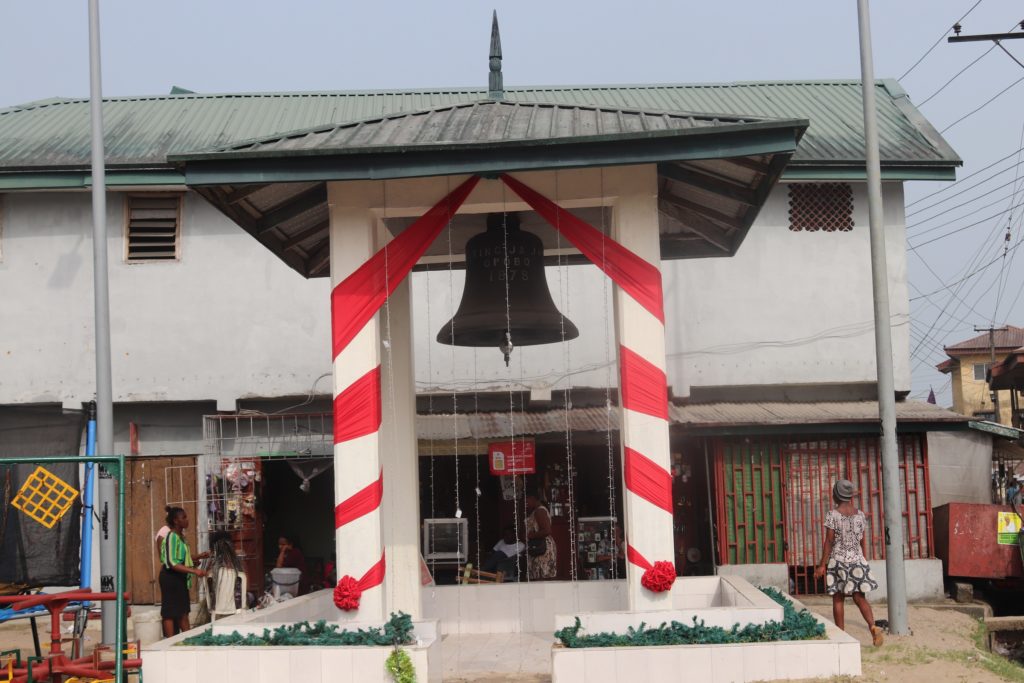
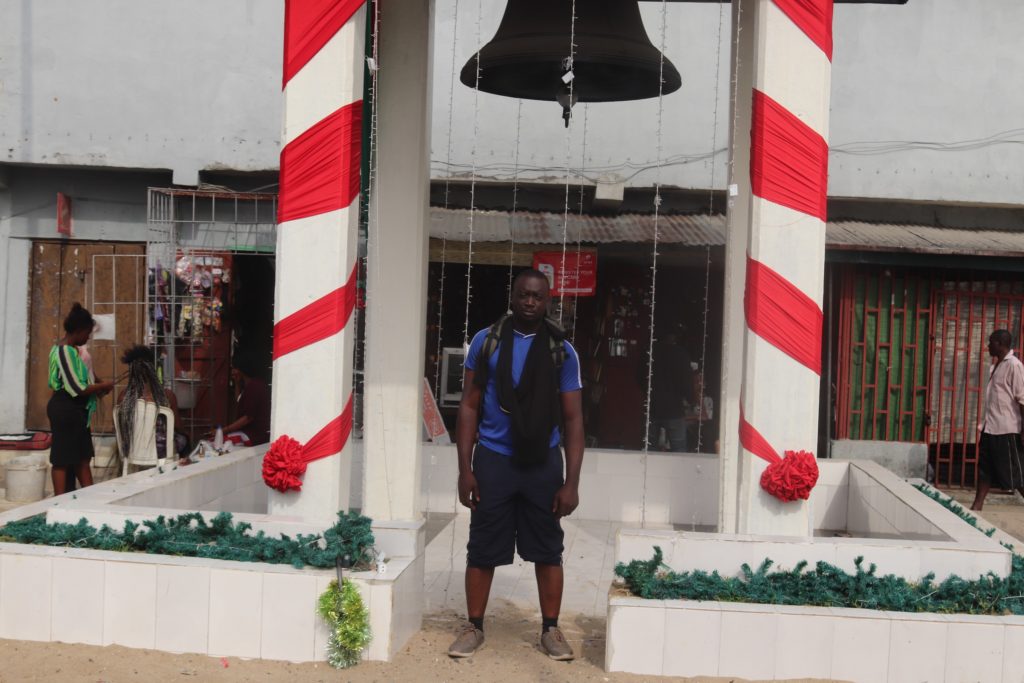
In front of the Bell in front of the Palace 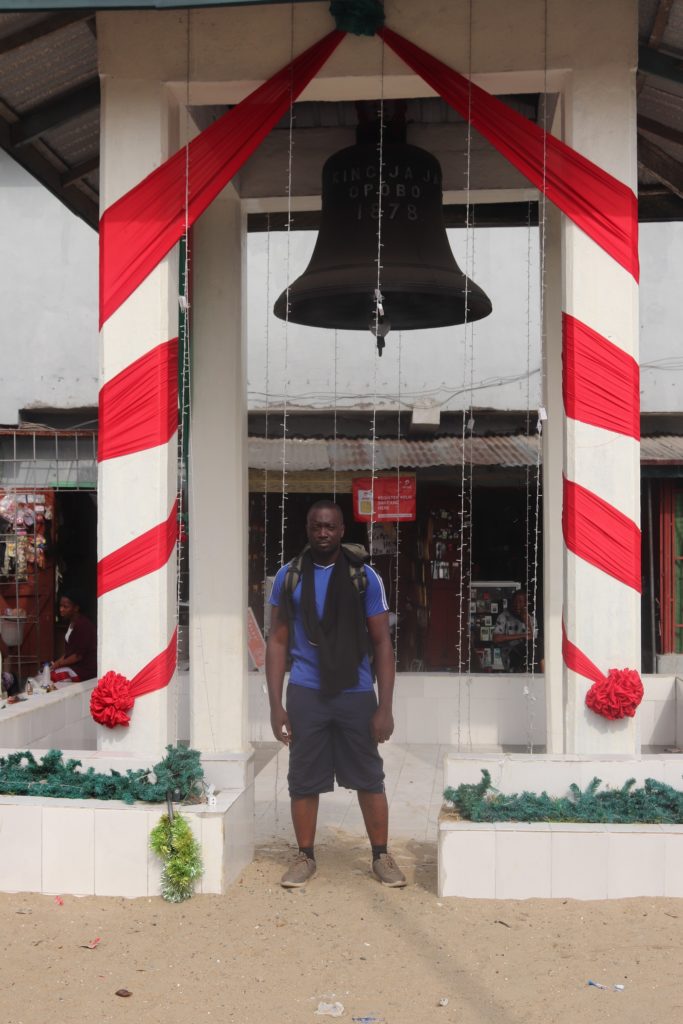
In front of the Bell in front of the Palace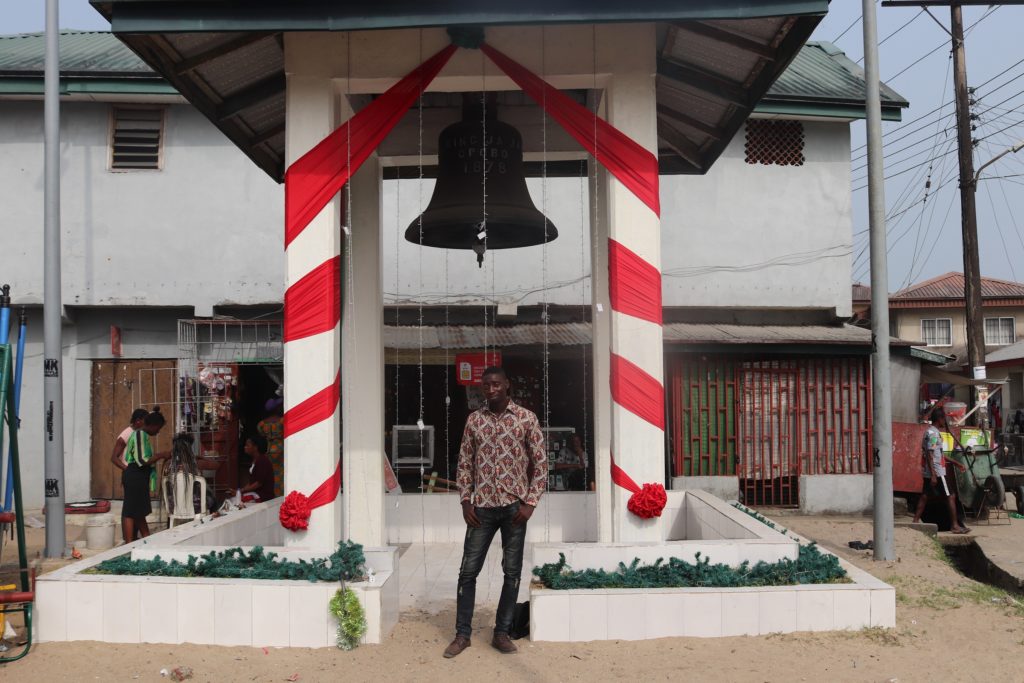
In front of the entrance into the Opobo town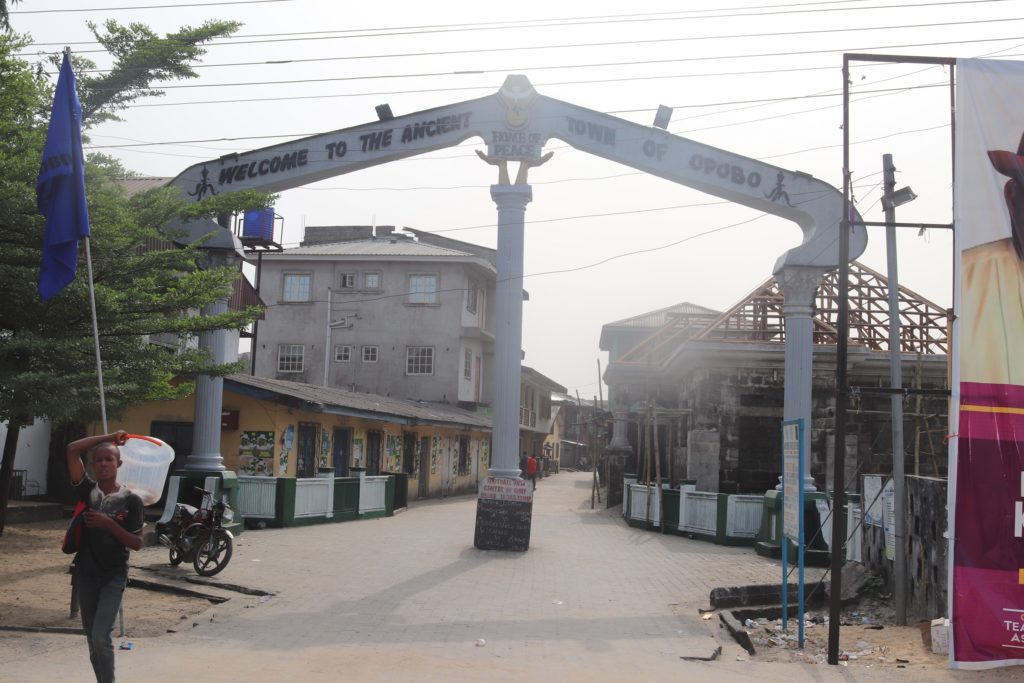
In front of the entrance into the Opobo town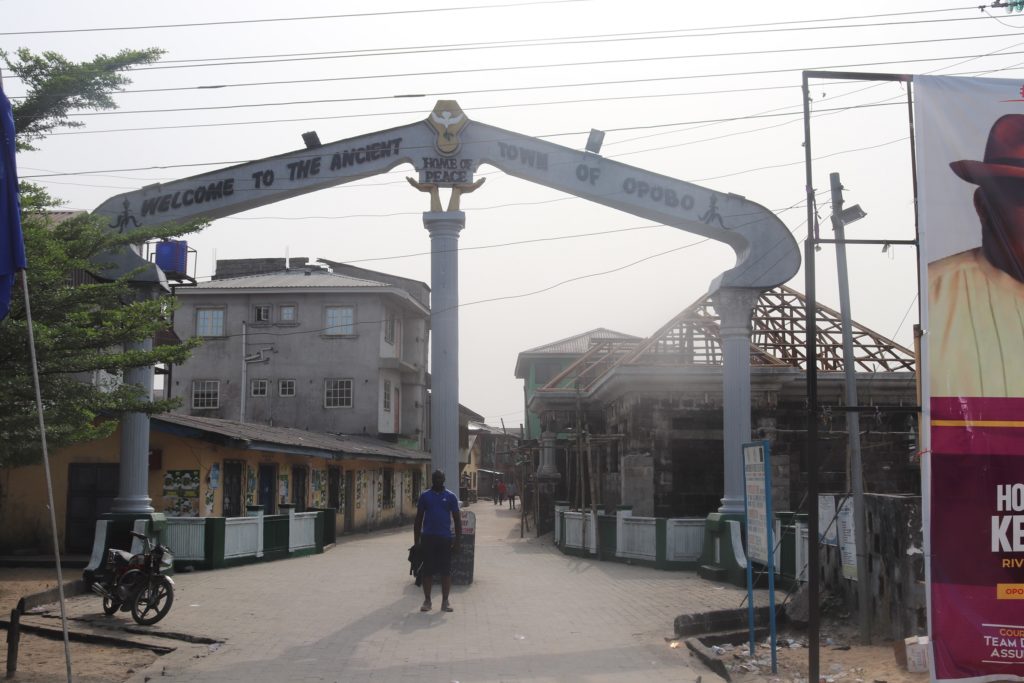
In front of the entrance into the town 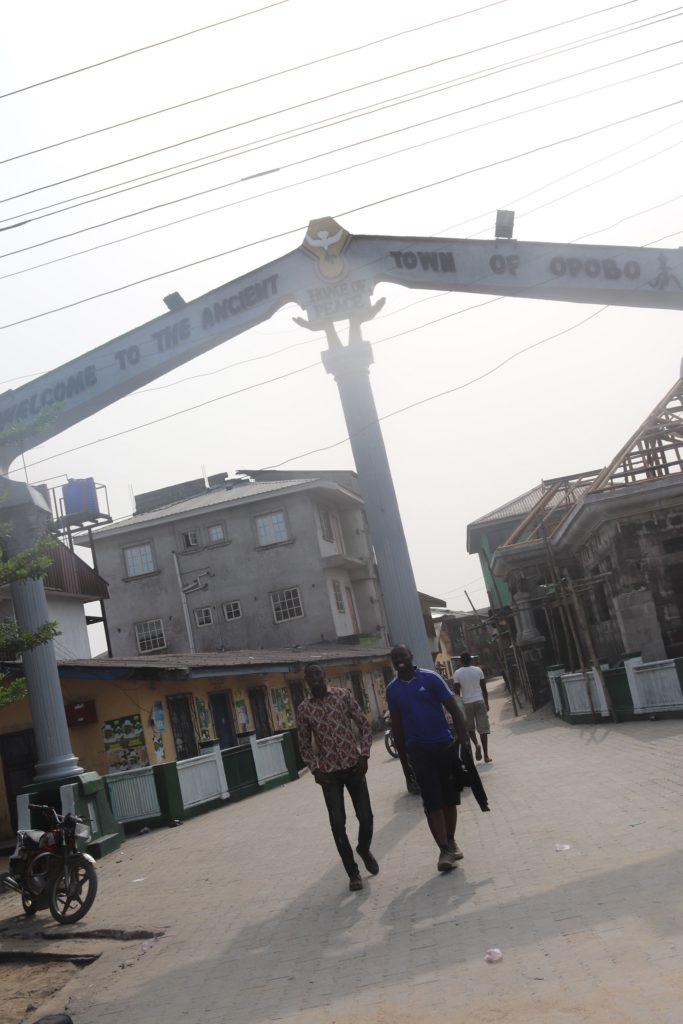
In front of the entrance into the Opobo town
One of the things you notice on arrival is that their streets are very narrow, and it’s so narrow that cars cannot pass on it and hence most people do not park their vehicles at home. They have a central place where they park their vehicles and then walk to their houses. David told me that most places in the riverine areas have roads like it was in Opobo. The people were lively and warm.
The town has several cultures which are still observed till date. Some of the cultures include not having or bringing a dog to the community. It’s forbidden to own or bring a dog to the kingdom. They believe that bringing dogs to the community would desecrate the land and whosoever brings a dog to the land would be fined to make sure the land is appeased. The story was told of a onetime state governor who visited the community with a sniffer dog for security purposes. It was on record that those who invited the governor were made to pay a whooping sum of almost 1.5 Million Naira, and equivalent of almost $4200 USD.
The culture also does not allow people to make noise or quarrel at night. Once it is 7pm, no one is allowed to involve in any activity that would cause noise or disturbance in the neighborhood. This practice dates back to the ancient times when their enemies attacked them by night. They believe that if there was noise, the enemy could successfully attack them unknowingly. In the same manner, people who would quarrel at night would be made to pay heavy fines. If people have problems in the night, they would have to postpone the quarrel till the next morning – this might have been the reason for the relative peace enjoyed by the community over the years.
There is also this culture that does not allow people to wear cap when entering someone’s house. It still forbids people stepping or standing in the door space. As weird as this law is, most people still practice it there till date. There are other culture that deals with women attaining motherhood, masquerades and owning boats.
The motorbike taking us to the ancient kingdom stopped us right in front of the renovated ancient palace of the King. The first question I asked David was – “Where was his buried”? We headed straight to a very elderly man seated in a compound adjacent the palace to show us where King Jaja was buried.
His response to our question was rather terrifying and discouraging. His words – “He remains may not be there. We however keep the location a secret from strangers. What you are looking for is over there and we have our masquerades there – Watam, Ogelenkpa and Shimini”, pointing to a compound behind him. He however added a final clause – “I can ask my son to show you the entrance but you both will certainly get lost in there”
Will we certainly get lost? I asked David and he said “Yes!”. He explained to me that the community is highly diabolical and something can happen to us if we entered the sacred compound. I was still adamant to enter, I went to speak to another person for assistance on going in to see his remains when suddenly from nowhere, a haggard looking teenager, a girl, but looked more like a boy who should be around 15 or 17. I also noticed she showed some signs of mental instability, came and started pulling me away and starring into my eyes and requesting me to give her some money with an evil smile. I was a bit scared with these developments. I pretended to be fine. By the time I succeeded in driving her away from me, she went to David and started pulling his hands as well. It was then I threatened to hit her with my camera. Immediately she left and the desire to enter the sacred compound disappeared. There were lots of passersby and no one attempted to stop her, knowing fully well we were strangers. Or were we the only ones that saw her? I pondered on this question for a long time even after we left the community.
Afterwards, David and myself decided it would be sufficing to just take photos of the monuments, the palace entrance and some large bells around the palace before taking our leave.
Later on, David narrated a similar a story to buttress the reason why he attempted to stop me from going ahead with my curiosity to see the ancient tomb. It was about one of his relatives who once wanted to travel on a bus and at the point of boarding the bus, a mad man appeared and slapped her. When she was trying to figure out what to do the mad man, someone else went in and took her space in the bus and the bus left without her. She eventually took another bus and it all happened the initial bus was involved in a ghastly accident that claimed the lives of all the passengers. He told me he sensed danger when that ‘insane’ girl appeared and decided that he must not allow me enter even if I had insisted.
With these events unfolding, we took some pictures of a few places around the palace, the roads and the town entrance. From the entrance of the town, there was a river that connected the town to Akwa Ibom state (Ikot Abasi) and we curiously wanted to sail over to see this community. We had to pay off the motorbike that brought us up till there and then proceeded to the little Akwa Ibom community. We took a vehicle from there to Eket. We had a casual walk in the town after which we retired to a hotel and continued our trip to Uyo the next morning.
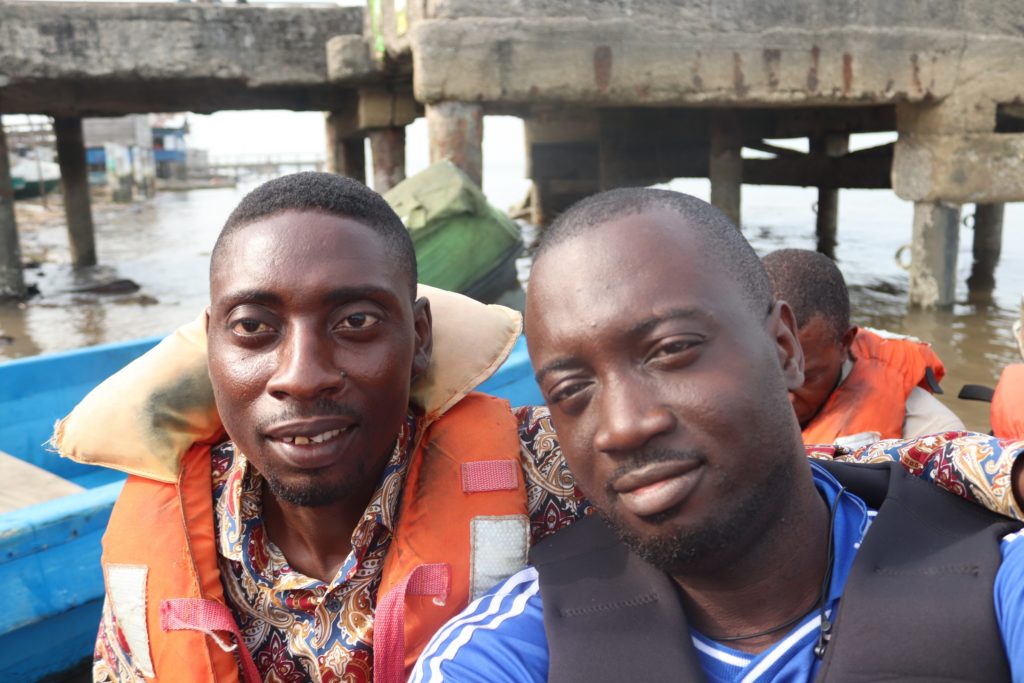
Jaja was born around 1821 in Amaigbo. His real name was Mbanaso Okwaraozurumba but later took up the name Jaja because of his dealings with the Europeans especially the British at the time. He was sold into slavery at Bonny Islands in present day Rivers State in Nigeria when he was around 12 years of age.
In Bonny, he was given the name Jubo Jubogha and was ranked on the lowest rung of slaves which included the ones born outside the town, and because he was difficult to control, he was later gifted to a one of the chiefs then by his master.
While in Bonny, he earned the respect of other slaves but with success comes envy. Some ex-slaves envied his prosperity and then decided to fight him. He fled to settle in a place referred to Opobo till this day.
On the 4th of January, 1873, Jaja signed a treaty with the British crown because of his dissatisfaction with a commercial agreement initiated by the King of Bonny. The treaty recognized Jaja as the king of Opobo and gave him the sole monopoly of trading except only in a few places.
The then British authority had issues with this treat because as at 1884/1885, the Berlin Conference had assigned that part of the present day Nigeria to the British and they felt it was not necessary to continue with this treaty.
With these development, the British accused King Jaja of obstructing trade and infringing the agreement made at the Berlin Conference. King Jaja, failing to understand the full import of the establishment of a protectorate for the district in which his kingdom was part, sent a deputation to the Foreign Office in London to plead his case.
The British decided to get King Jaja of Opobo out of the way and thus persuaded the King of Bonny to repudiate him. He was then exiled to the Gold Coast which is now known as Ghana where he served a prison term.
Shortly before his banishment to Ghana, the British demanded a third party opinion but still couldn’t stop the banishment. An inquiry into King Jaja’s activities was held in Accra under a senior naval officer, Lord Commissioner of the Admiralty. It appeared that King Jaja’s actions against free trade was out of his ignorance and misinterpretation of the agreements at the Berlin Conference hence he was absolved of all wrong doing.
He was later exiled for the benefit of free trade in the hinterland. Although King Jaja pleaded in a letter to be exiled in Accra, he was refused as he was thought capable of reasserting his authority from a place that was considered near to his kingdom.
He lived the rest of his life in St. Vincent Island in the West Indies. However, in 1891, the British decided that King Jaja could return to his kingdom but on his way back, he died of what many thought was poisoning.
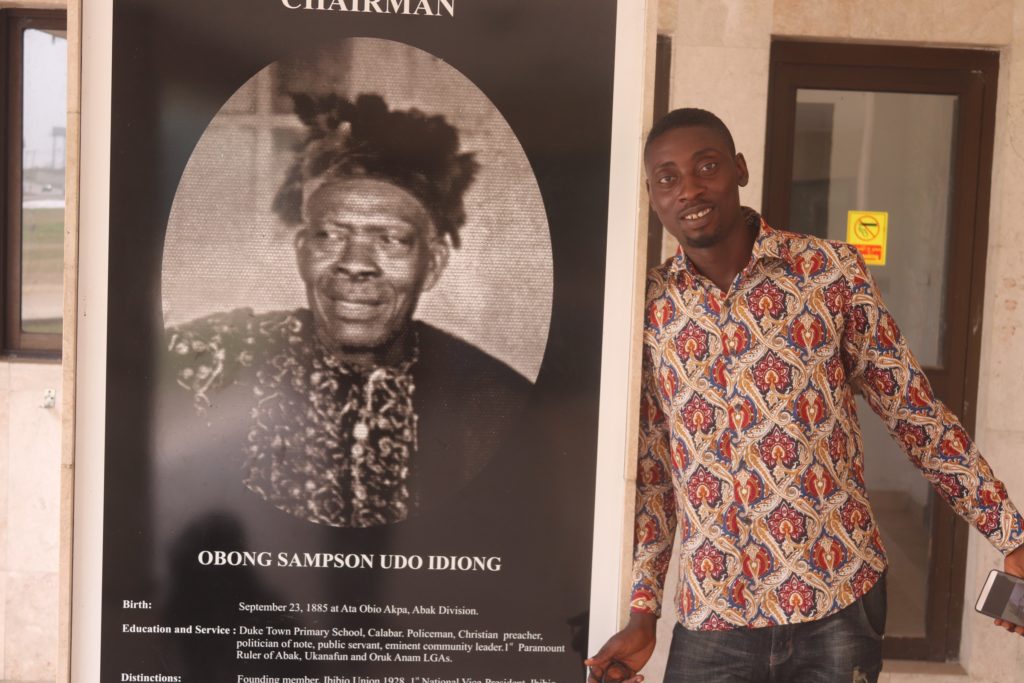
At the Museum 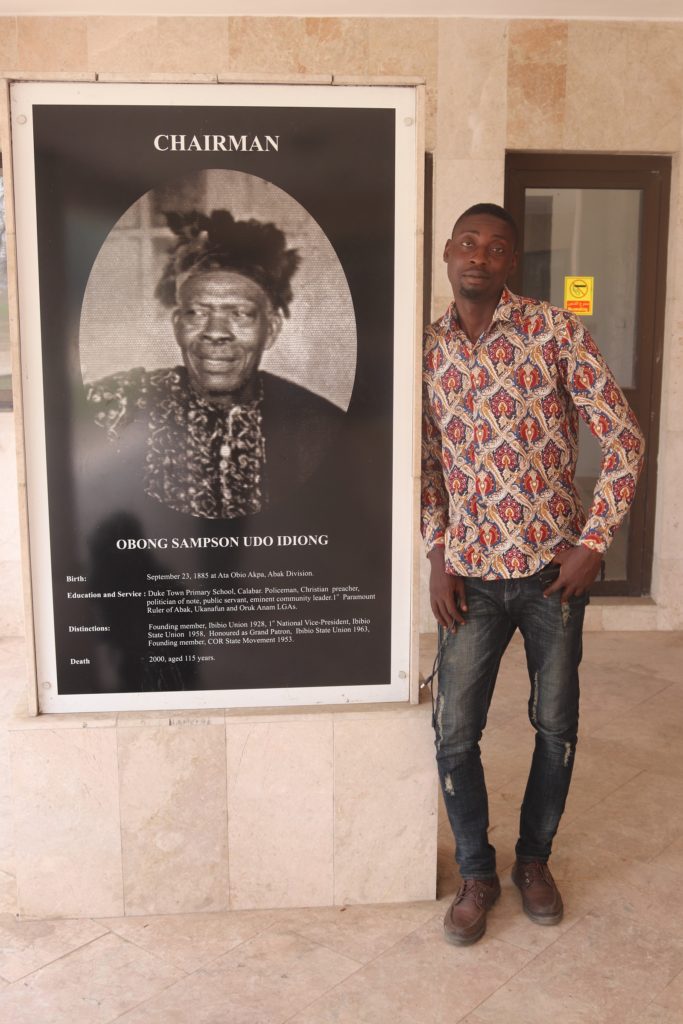
At the Museum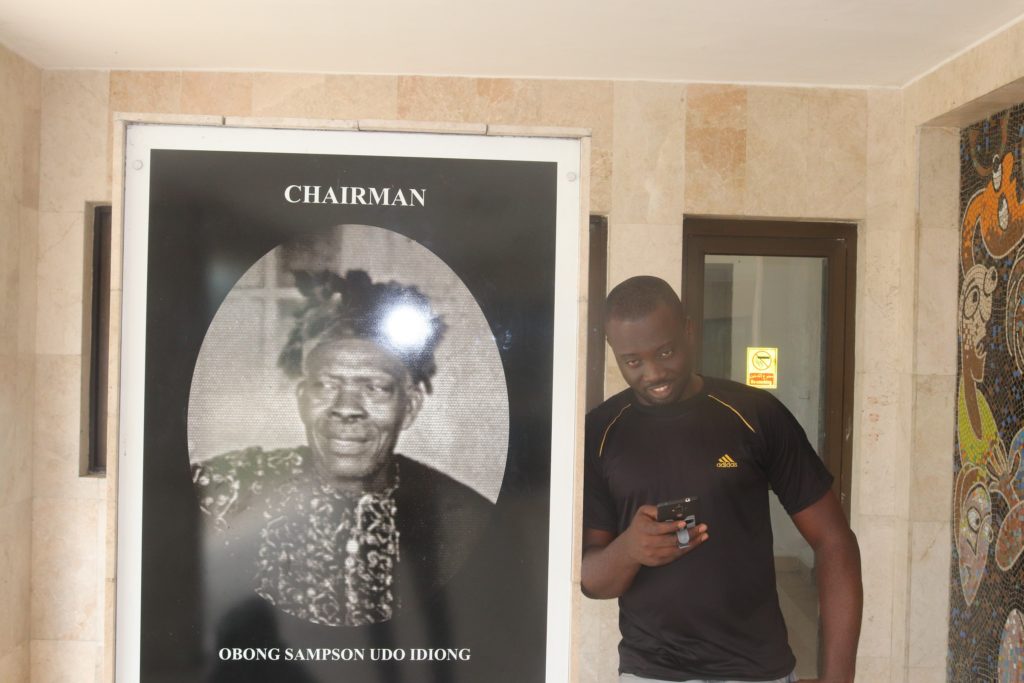
At the Museum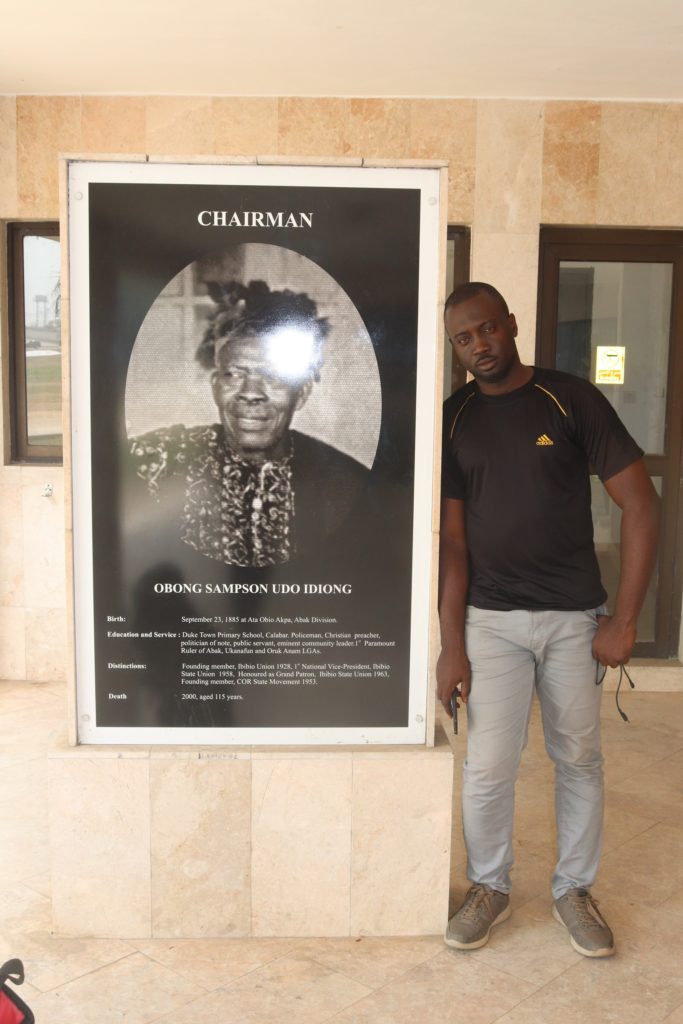
At the Museum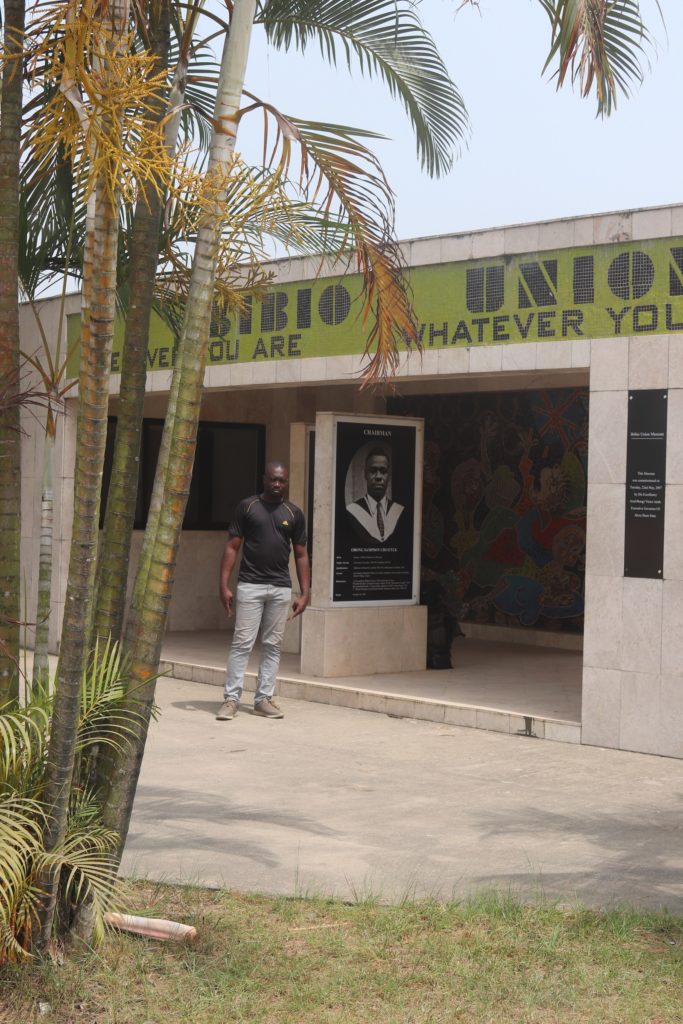
At the Museum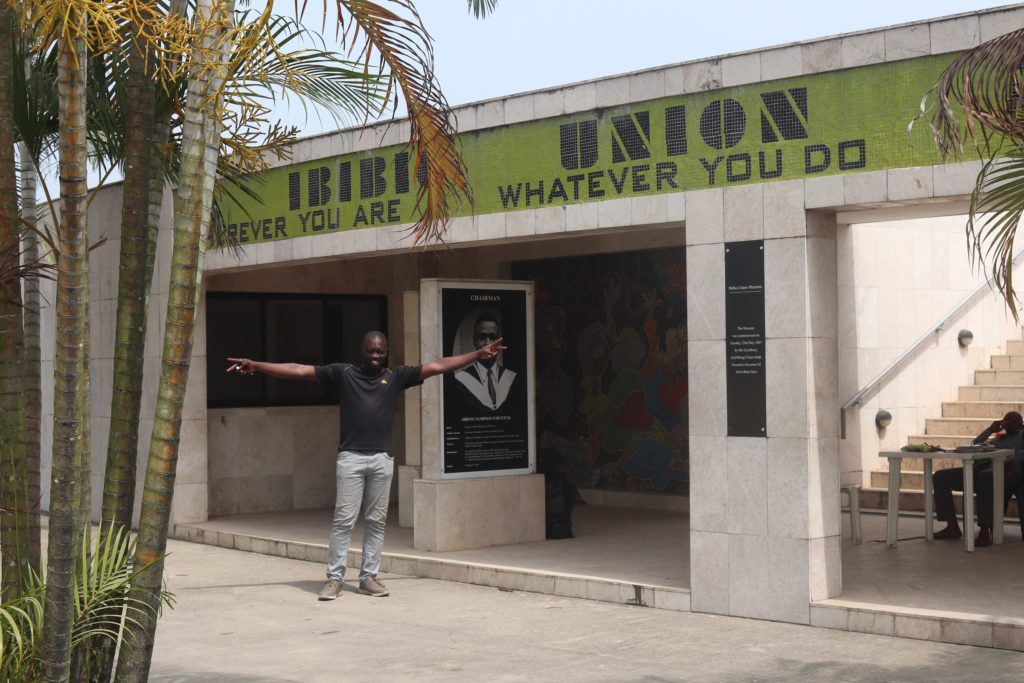
At the Museum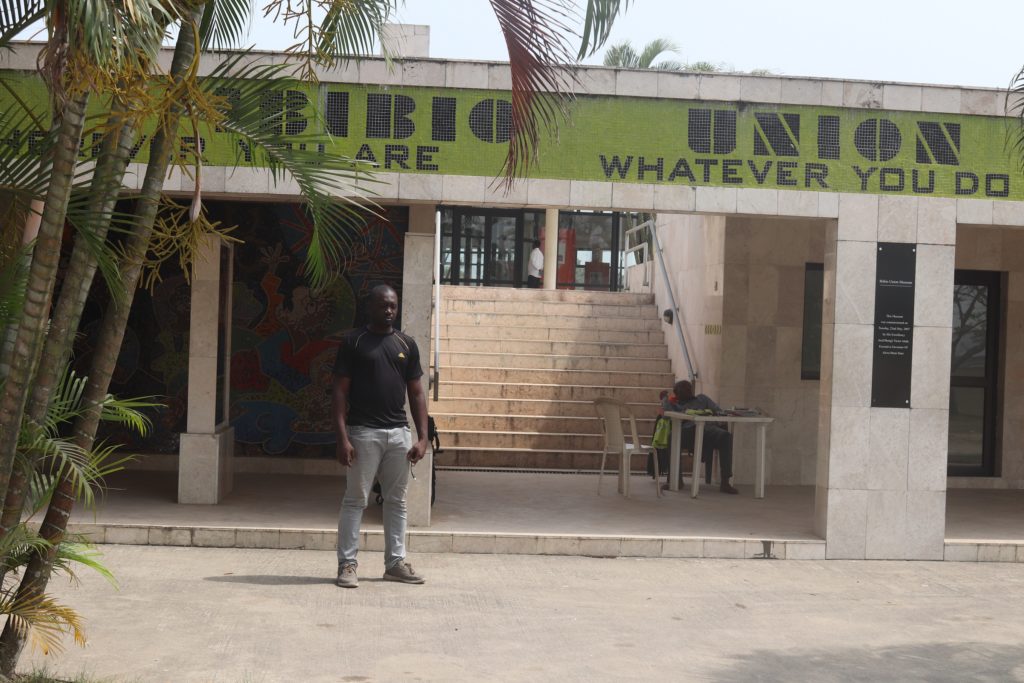
At the Museum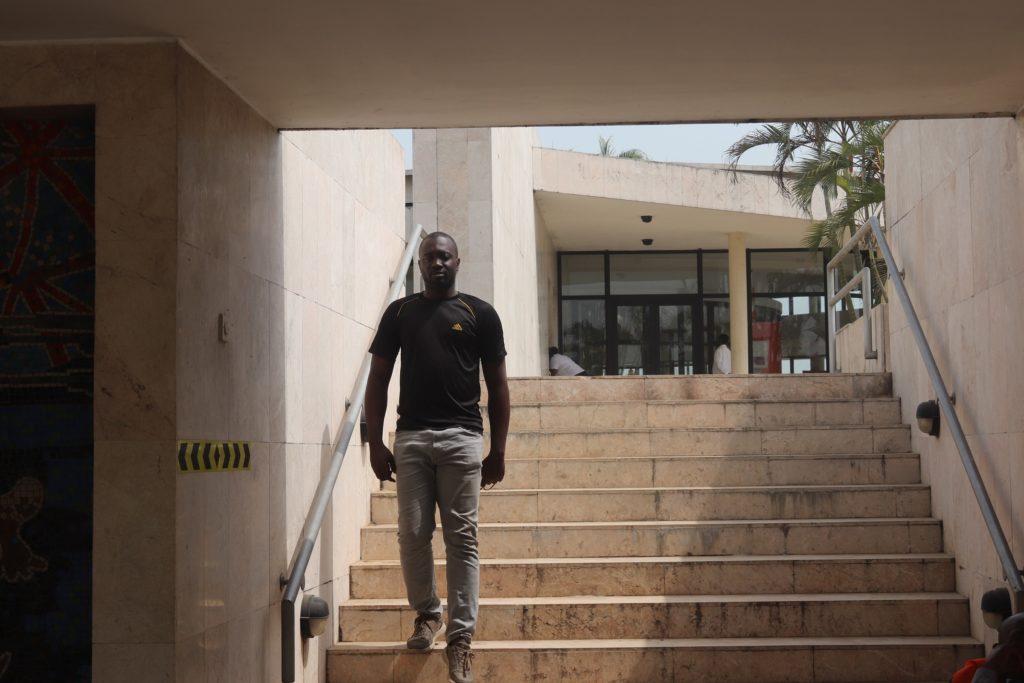
At the Museum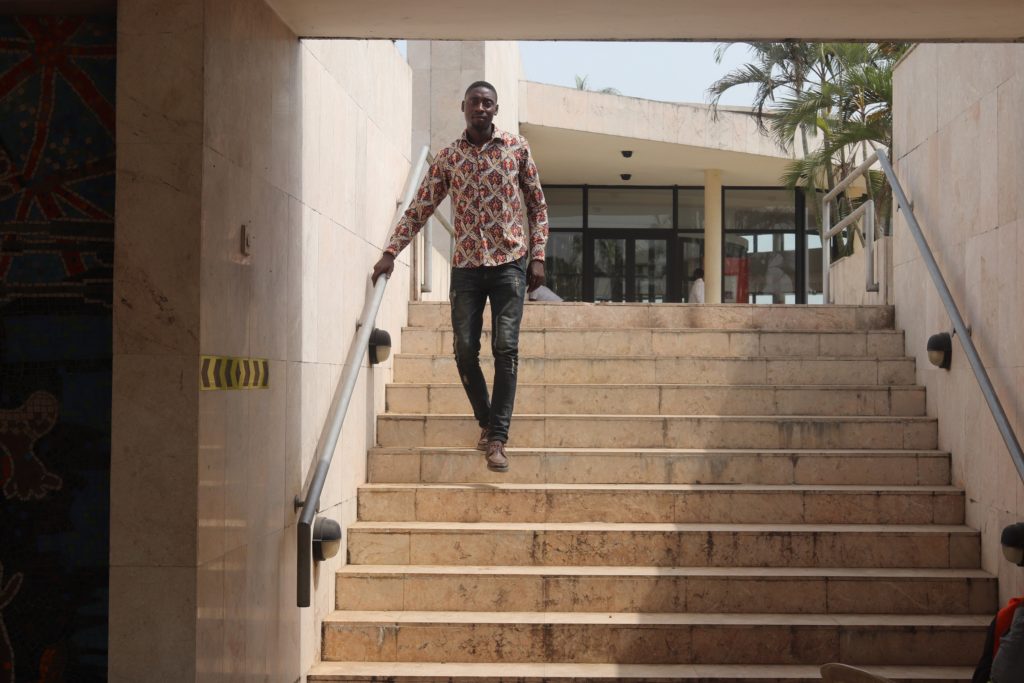
At the Museum
The next day, visited the Akwa Ibom museum, we went around the beautiful city of Uyo. David and myself went to the Akwa Ibom Transport Company for him to get a bus back to Yenogoa in Bayelsa state while I headed to the Akwa Ibom Airport in Uyo, to take a place back to Lagos.
The airport was some distance away from the town. We spent almost 45 minutes to get there and I was very lucky a staff of the airport was in the same public transport that took me to the airport. We were able to negotiate with one of the red small buses to drop us off at the airport terminal. He also helped me to board the plane quickly because by the time I arrived, it was not possible to check in again.
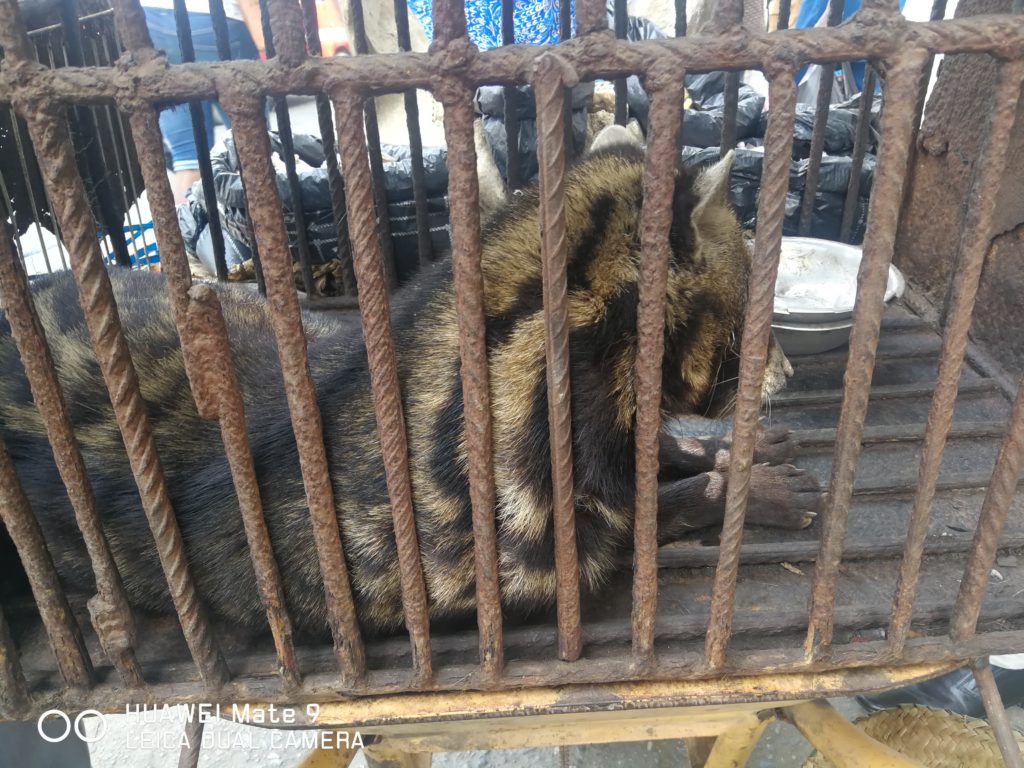
A wolf 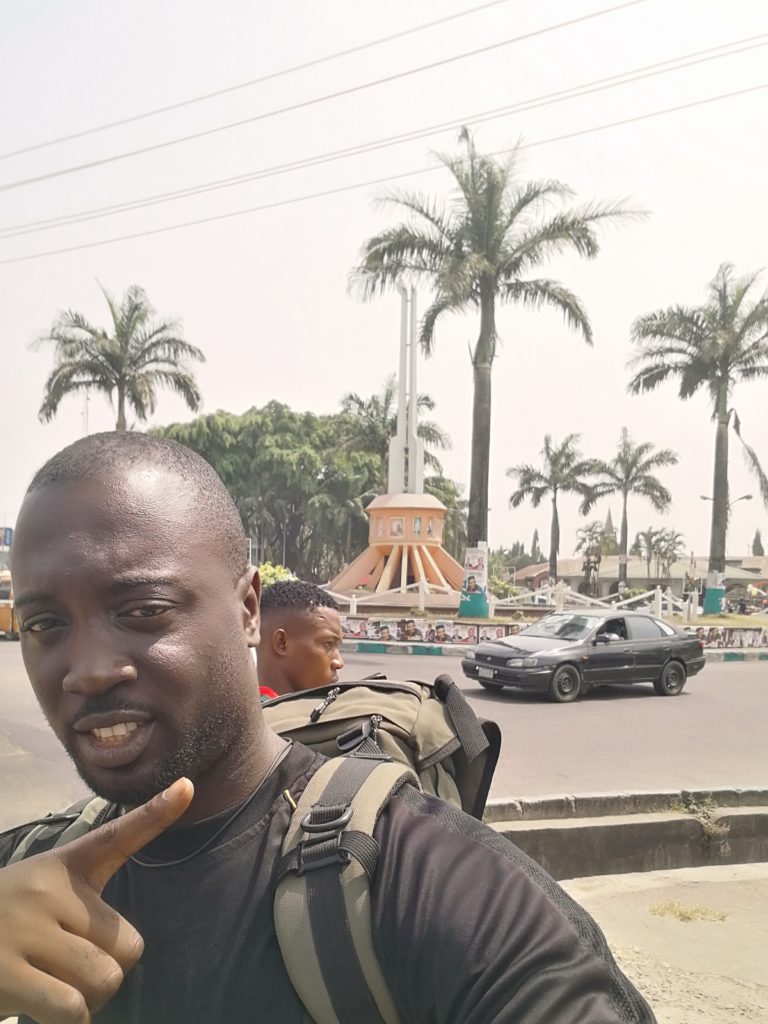
In Uyo City 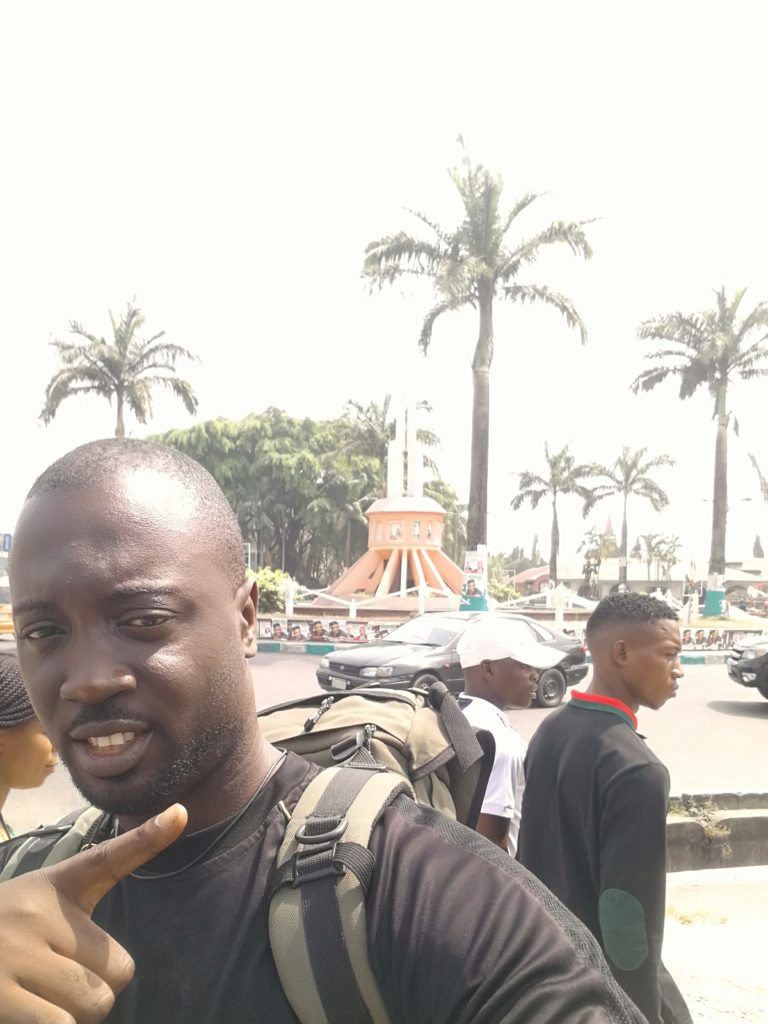
In Uyo City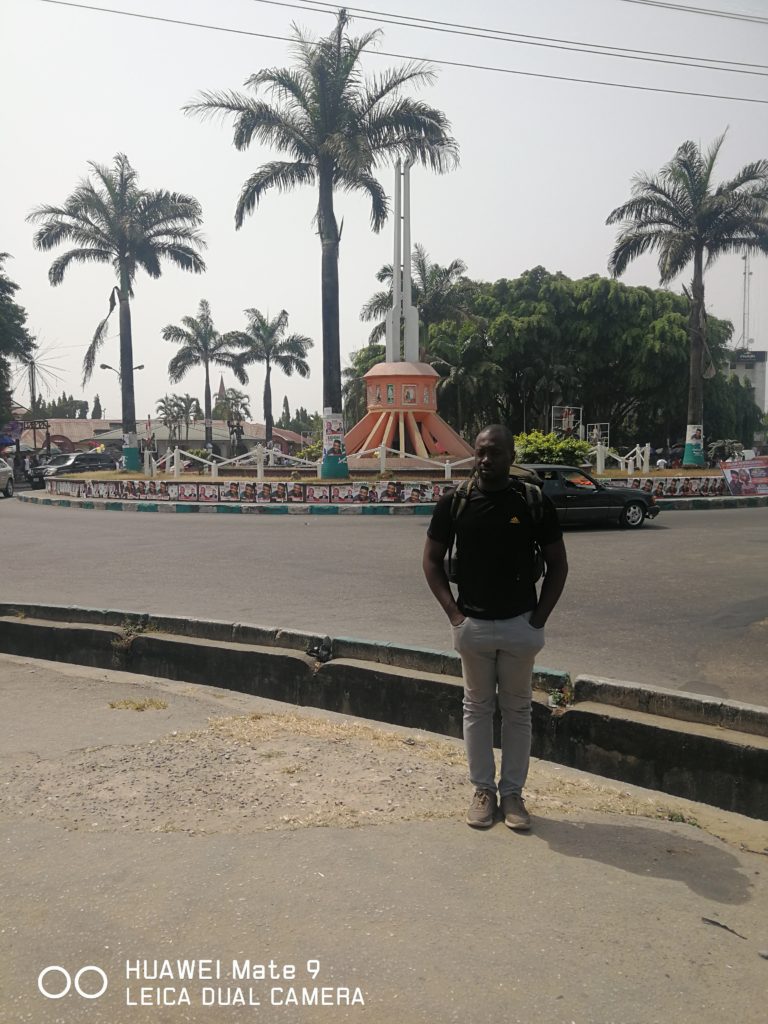
In Uyo City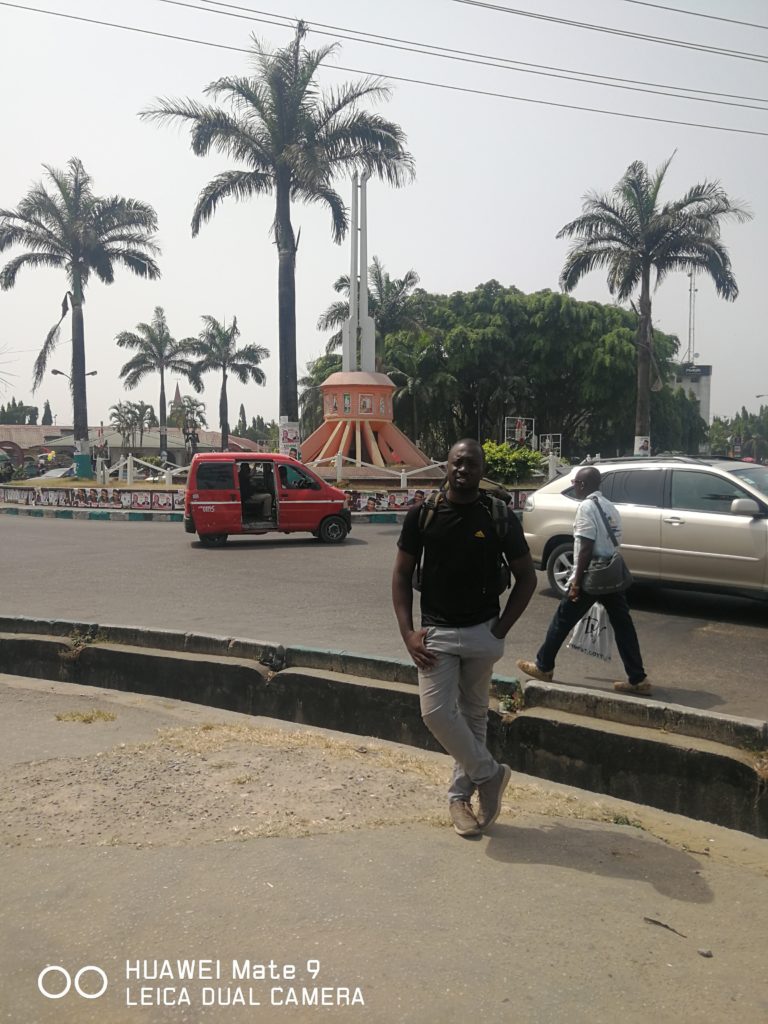
In Uyo City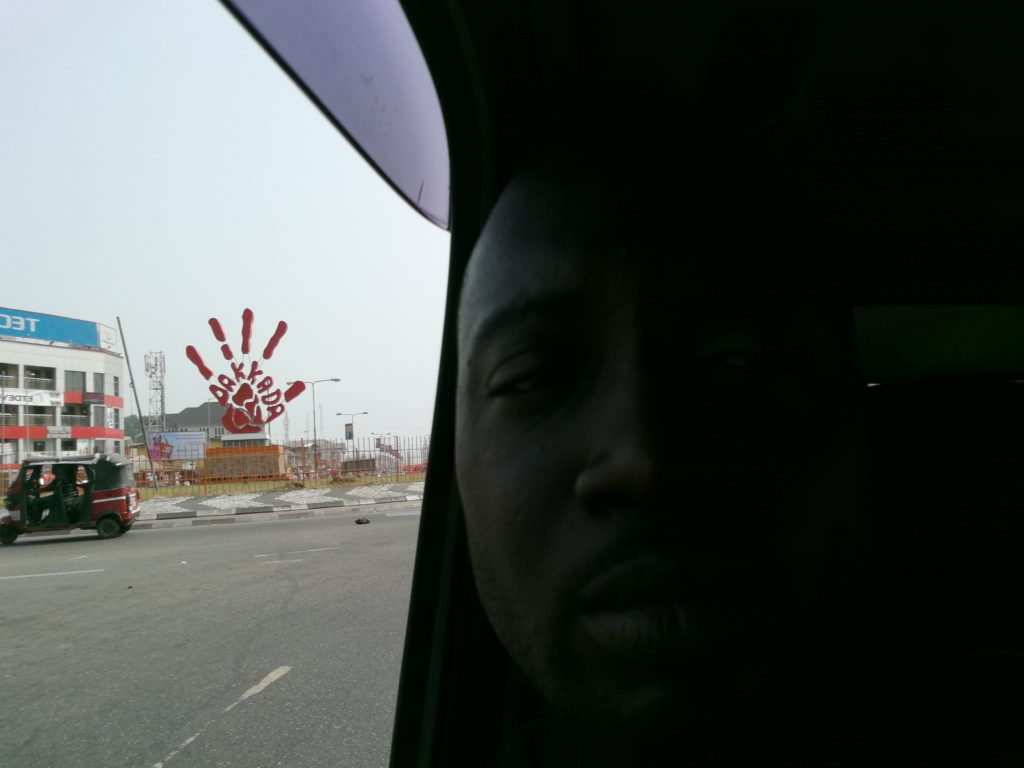
In Uyo City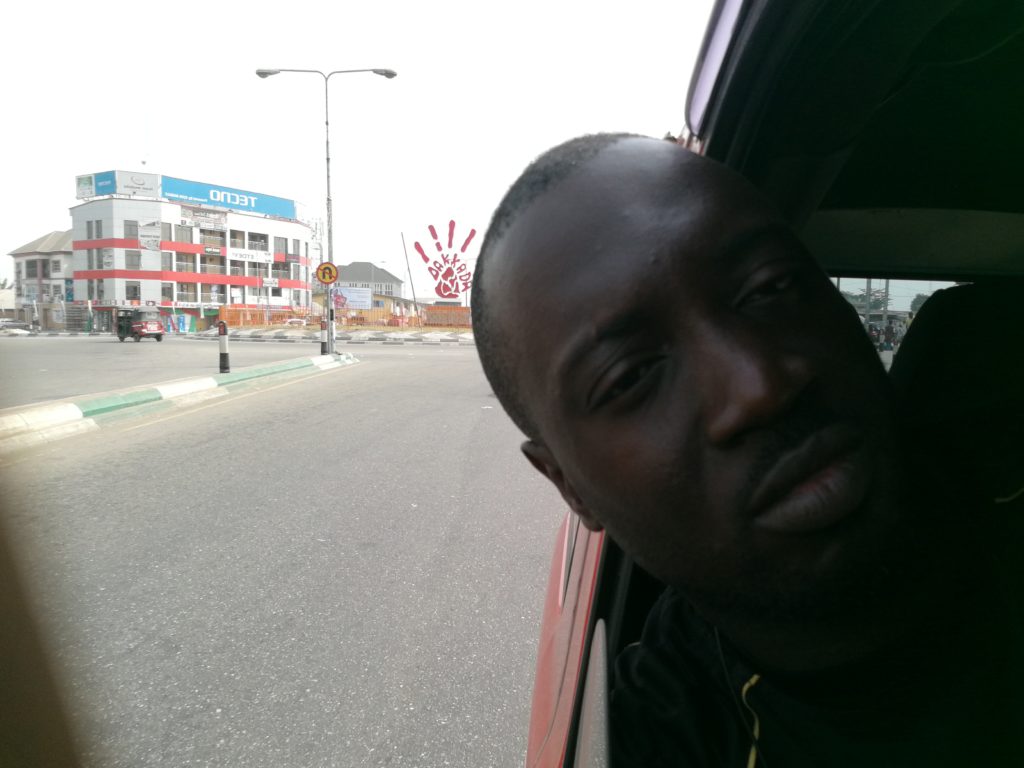
In Uyo City 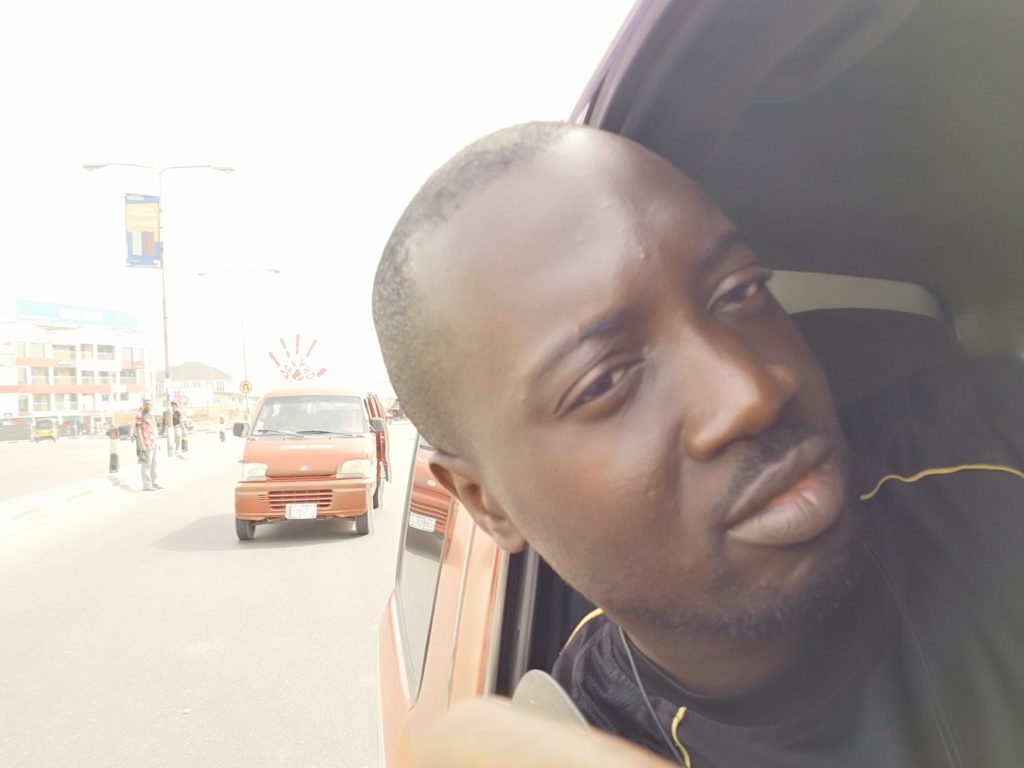
In Uyo City , in one of the Red Bus – you can see one behind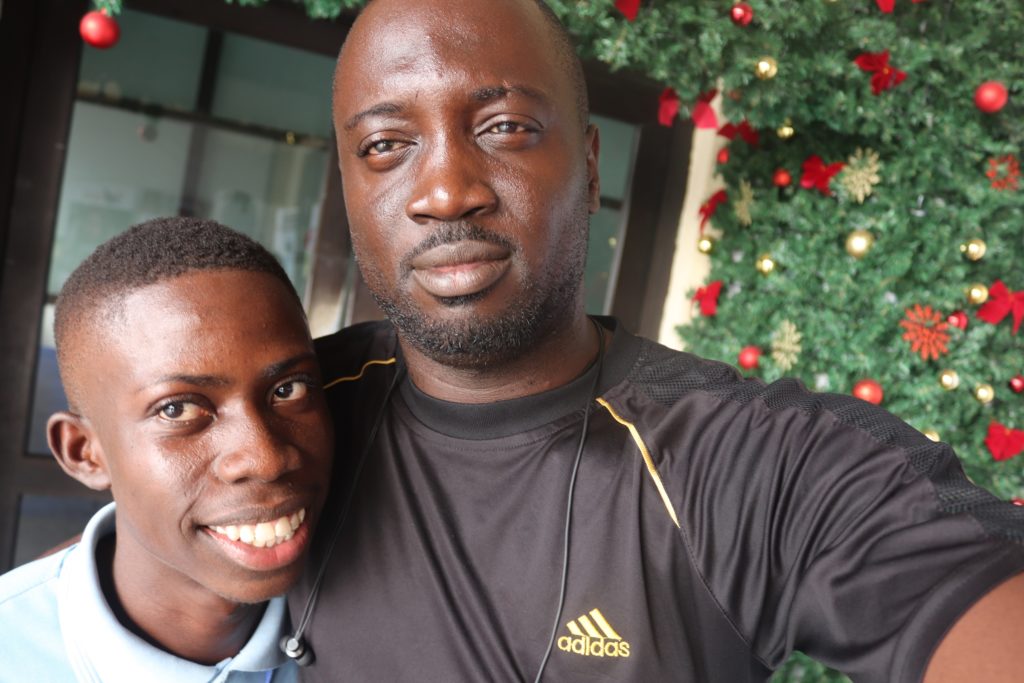
With Emem, the kind guy that helped me board the plane without problems
I flew back to Lagos, with the fulfilment that I have seen and visited several places of interest in Nigeria.

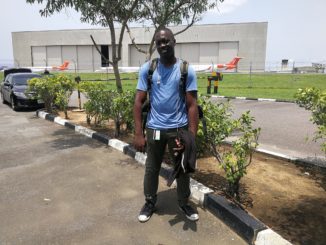
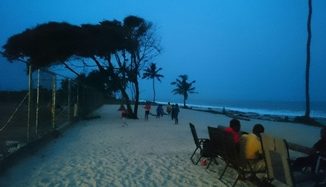
Be the first to comment